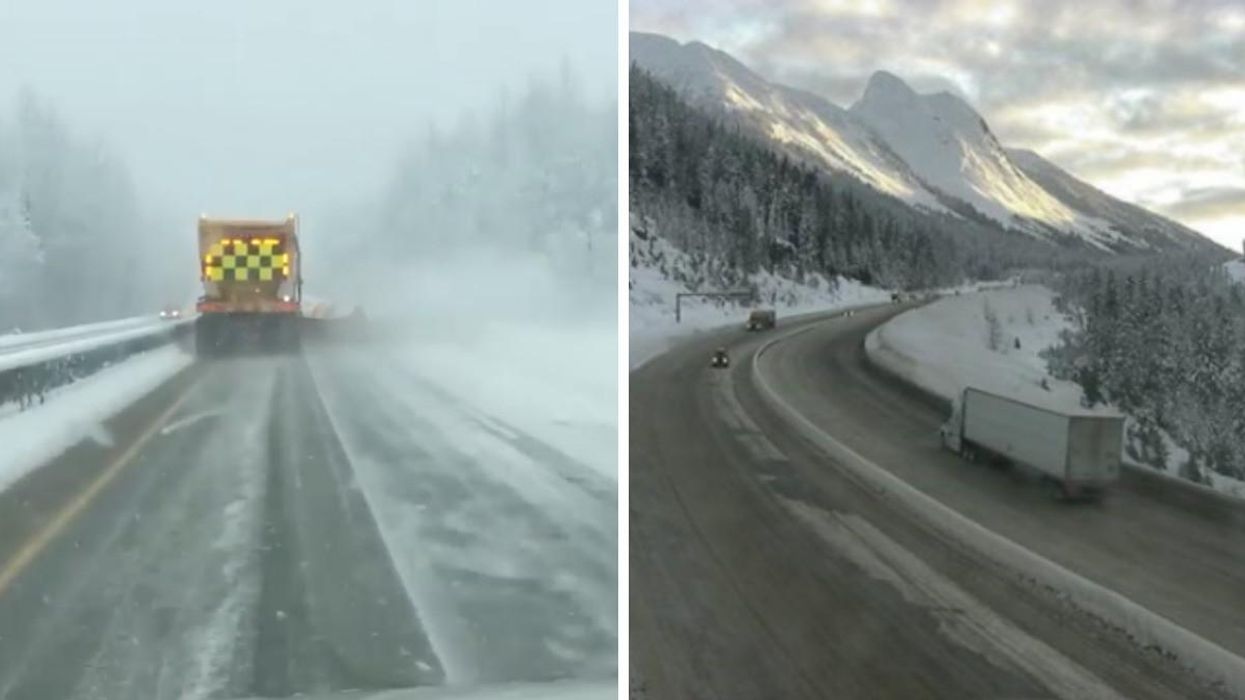BC Weather Forecast Is Calling For A Winter Storm & Up To 50 cm Of Snow In Some Spots
Oh, the weather outside is frightful!
Parts of B.C. are experiencing strong winds, rain and accumulating snowfall — and it looks like a wintry mess.
Environment Canada has multiple weather warnings in place for rain affecting the Metro Vancouver area, snowfall on the Sea to Sky Highway towards Whistler, as well as Howe Sound and the Fraser Valley.
There are also warnings in effect for strong winds on Vancouver Island and areas of the Central Coast.
Hazardous driving conditions are expected across many parts of the province and people have been told to consider postponing non-essential travel until conditions improve.
Winter Storm Warnings
The Coquihalla Highway between Hope and Merritt is expected to get between 30 to 50 centimetres of snow. There could also be blowing snow with wind gusts of 50 to 70 km/h.
Highway 3 between Paulson Summit to Kootenay Pass is expected to get between 20 to 30 centimetres of snow.
Western sections of Elk Valley including Fernie and Morrissey are also under a winter storm warning for snow starting later Friday afternoon through Saturday.
Snowfall Warnings
The Sea to Sky Highway between Squamish and Whistler is predicted to receive 15 to 20 centimetres of snow on Friday afternoon into Saturday morning.
Highway 3 between Hope and Princeton via Allison Pass is also expected to get between 20 to 30 centimetres of snow through Saturday.
Snowfall warnings are in effect for inland areas of the North Coast including Stewart and Terrace, where up to 25 centimetres of snow could fall.
Rainfall Warnings
Up to 60 millimetres of rain is predicted to fall across Metro Vancouver. According to Environment Canada, the rain will intensify on Friday night and ease on Saturday morning.
Wind Warnings
Gusts of up to 100 km/h are set to batter West Vancouver Island Friday night through Saturday. The winds should ease after midnight. It will also be accompanied by 80 millimetres of rain.
In north Vancouver Island and coastal sections of the Central Coast, winds could reach 110 km/h, which is enough to cause "damage to buildings, such as to roof shingles and windows [...]. Loose objects may be tossed by the wind and cause injury or damage."
